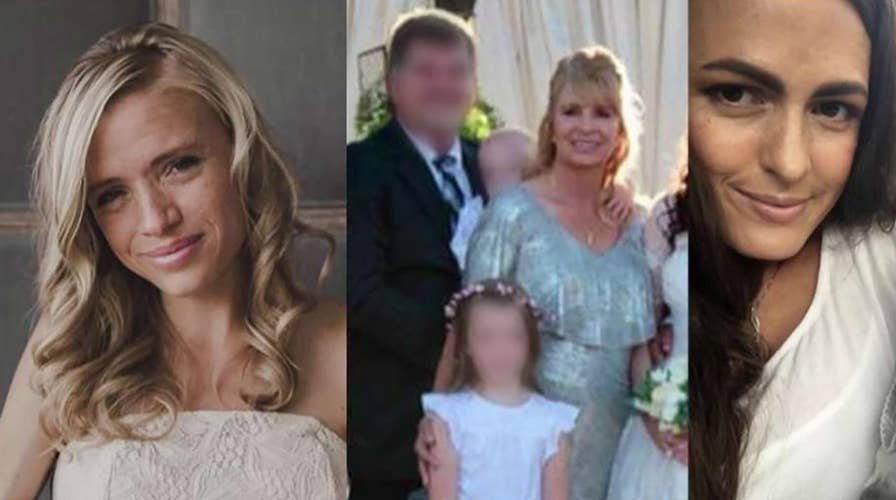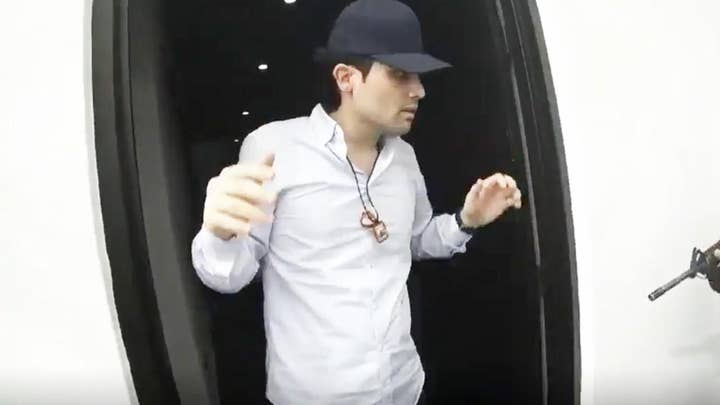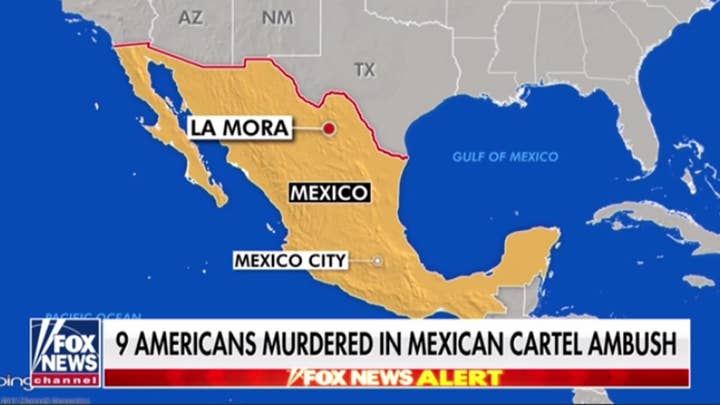Americans killed in cartel shootout in Mexico
At least nine American citizens including children have been killed by a Mexican drug cartel after being ambushed on the road.
The slaughter of at least nine Americans – including six children – at the hands of cartel gunmen in northern Mexico is the latest massacre pushing back against the Mexican president’s unclear security strategy of “hugs not bullets.”
President Andres Manuel Lopez Obrador used the catchy phrase – “abrazos, no balazos” in Spanish – in his promise to clear out violent drug cartels, not by waging war, but instead changing communities by tackling what he said is the root of the problem: extreme poverty.
“This is no longer a war. This is no longer about force, confrontation, annihilation, extermination, or killing in the heat of the moment,” the president said at a recent news conference. “This is about thinking how to save lives and achieve peace and tranquility in the country using other methods.”
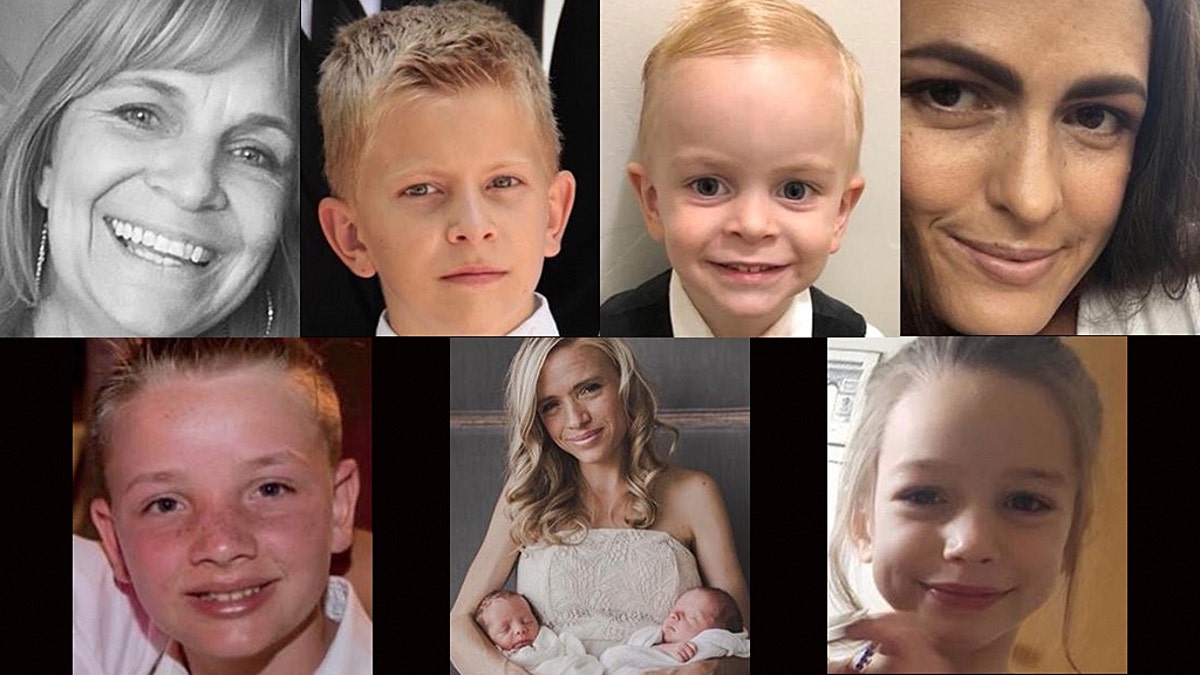
Clockwise from top left: Dawna Langford, Trevor Langford, Rogan Langford, Christina Marie Langford Johnson, Kristal Miller, Rhonita Maria Miller and twins Titus and Tiana, and Howard Miller. (GoFundMe)
MEXICAN CARTEL MASSACRE: 9 AMERICANS, INCLUDING 8 CHILDREN FROM MORMON OFFSHOOT MURDERED
However, Monday’s attack on a convoy of members of the La Mora religious community, a decades-old settlement in Sonora state founded as part of an offshoot of The Church of Jesus Christ of Latter-day Saints, as well as the recent botched arrest of a son of drug kingpin Joaquin “El Chapo” Guzman raise questions on whether Lopez Obrador’s plans are actually working.
“He can't continue with this strategy of peace and love with the criminals and say that there isn't war,” Raúl Benítez, a security expert and professor at the National Autonomous University of Mexico, told the Associated Press after at least eight people died in Culiacan during while an army antidrug unit captured and then released Ovidio Guzman Lopez – who is wanted by U.S. authorities on drug trafficking charges – to avoid further bloodshed last month. “The criminals are declaring war on the government and the country, the citizens, the people.”
However, Lopez Obrador remained steadfast on Tuesday with his approach of not waging war, calling Monday’s massage a “lamentable situation.”
During his morning news conference, Lopez Obrador promised that his government would do everything possible to find the perpetrators of Monday’s attack, but insisted that the strategy carried out by the previous two governments failed.
“They declared war and it didn’t work,” he said. “They just put the people of Mexico in mourning.”
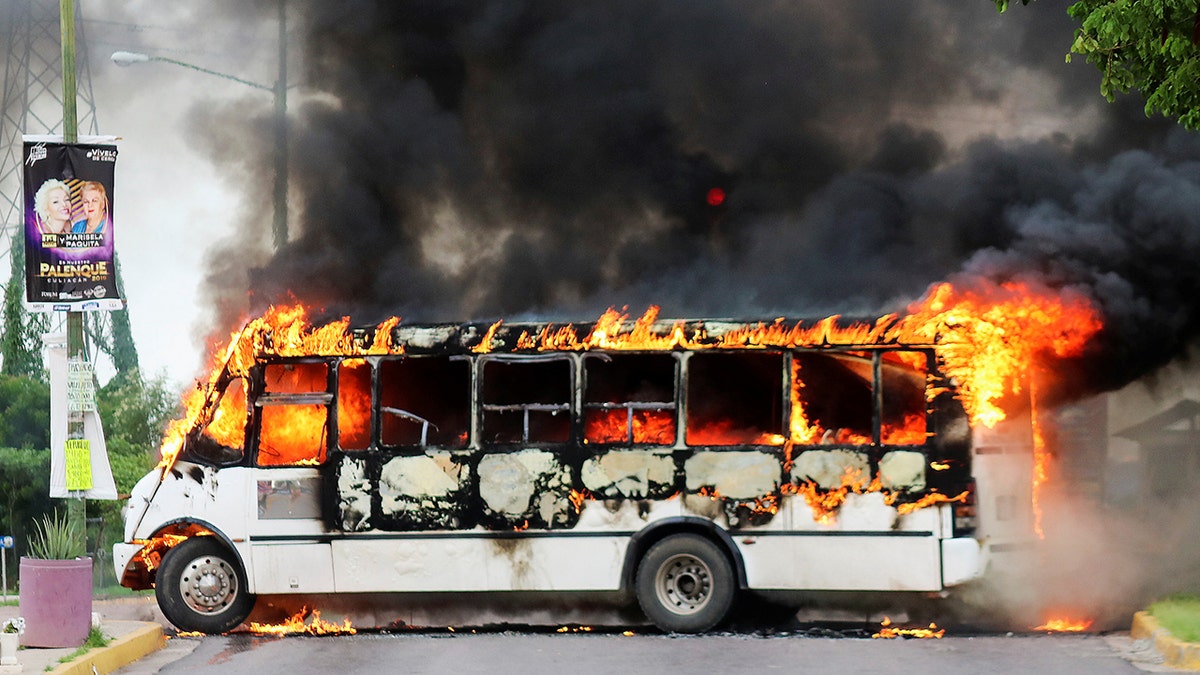
A burning bus, set alight by cartel gunmen to block a road, is pictured during clashes with federal forces following the detention of Ovidio Guzman, son of drug kingpin Joaquin "El Chapo" Guzman, in Culiacan, Sinaloa state, Mexico October 17, 2019. (REUTERS)
LA MORA, THE MORMON OFFSHOOT COMMUNITY CAUGHT UP IN MEXICO'S BRUTAL DRUG CARTEL WAR
Lopez Obrador said his government will not change his strategy of dealing with the country’s relentless cartel-fueled violence, saying he will continue to provide “a lot of well-being for the population and a lot of attention to young people.”
“We will not yield on this,” he said.
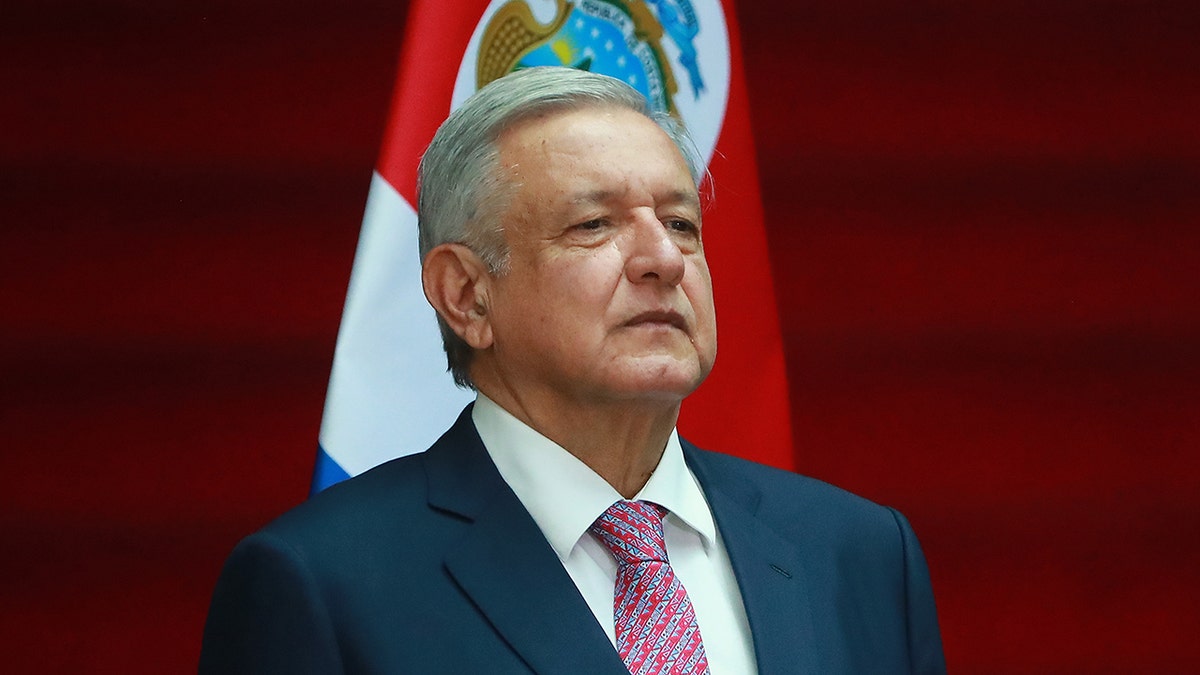
Andres Manuel Lopez Obrador, President of Mexico poses during a state visit to Mexico at Palacio Nacional on October 21, 2019 in Mexico City, Mexico. (Getty)
He also rejected any help from the United States to help engage drug cartels in light of Monday’s deaths.
President Trump spoke with Lopez Obrador on Tuesday, the White House said. “President Trump made clear that the United States condemns these senseless acts of violence that took the lives of nine American citizens and offered Mexico assistance to ensure the perpetrators face justice. The two leaders also discussed ongoing border cooperation and the strong bilateral ties between the United States and Mexico.“
Earlier, Trump offered his assistance to “wage war” against Mexico’s murderous drug cartel “monsters.”
“If Mexico needs or requests help in cleaning out these monsters, the United States stands ready, willing & able to get involved and do the job quickly and effectively,” Trump tweeted. “The great new President of Mexico has made this a big issue, but the cartels have become so large and powerful that you sometimes need an army to defeat an army!”
In another tweet, he wrote: “This is the time for Mexico, with the help of the United States, to wage WAR on the drug cartels and wipe them off the face of the earth. We merely await a call from your great new president!”
The prosecutor's office in Sonora state gave a description of the crime scene on the Sonora-Chihuahua border. They said police first found the burned-out Chevy Tahoe with the five dead. About 11 miles up the mountainous dirt road, they found a Suburban with a dead woman and two dead children inside. Farther on, they found a second Suburban and, about 15 yards away, the body of a woman.
Police found a total of about 200 spent shell casings from assault rifles and other weapons at the various crime scenes.
TRUMP CALLS FOR 'WAR' AGAINST MEXICAN DRUG CARTEL 'MONSTERS' AFTER AMERICANS MURDERED
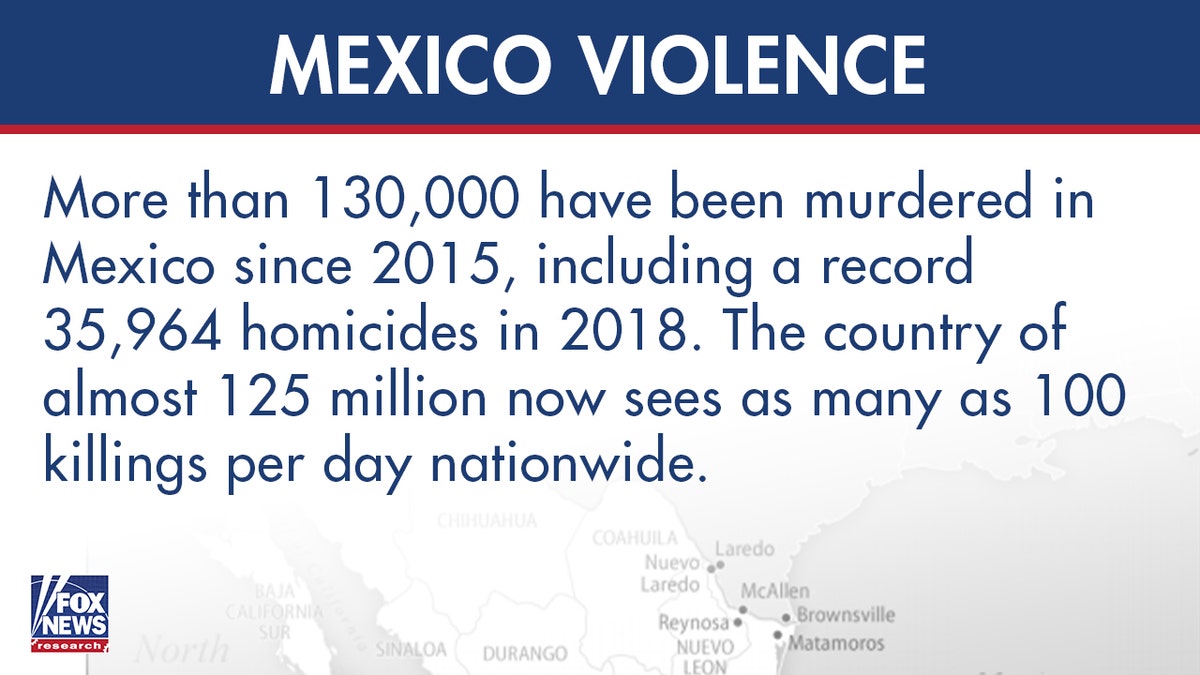
During Lopez Obrador’s presidency, Mexico is on track to record more than 32,000 murders this year.
Security experts said that the president’s strategy does not directly address the terrifying power of the country’s criminal underworld – which was brazenly on display on Monday and on Oct. 17 in Culiacan.
Another bloody ambush to make headlines just last month was when a group of armed gunmen believed to be part of the Jalisco New Generation, one of Mexico’s most powerful cartels at the moment, ambushed a police convoy in the western state of Michoacan. At least 13 officers were killed and nine were wounded in that incident, which happened just four days before the Culiacan incident.
In that case, Lopez Obrador defended the retreat of security forces, saying the "capture of one criminal cannot be worth more than the lives of people."
"This decision was made to protect citizens," he said at the time. "You cannot fight fire with fire. We do not want deaths. We do not want war."
MEXICAN PRESIDENT DEFENDS RETREAT OF SECURITY FORCES, RELEASE OF EL CHAPO'S SON
Earlier this year, Fox News reported that kidnappings and murders were on the rise in Mexico. One victim was American photographer John Sevigny, who has traveled extensively for nearly two decades throughout Mexico and Latin America documenting, as he calls it, the “lives of people who are struggling to live.”
He was snatched by sicarios in the city of Cordoba in the state of Veracruz in January.
“I have met a lot of cartel people with my work – I haven’t met anyone as particularly cruel as these men. The sheer number of weapons blew my mind,” he told Fox News
The U.S. Department of State issued a travel advisory for Americans visiting Mexico last year, saying to exercise increased caution due to crime. On Tuesday, it reiterated its commitment to the safety of Americans living and traveling abroad.
13 MEXICAN POLICE OFFICERS MURDERED BY SUSPECTED CARTEL GUNMEN IN BLOODY AMBUSH
The most visible element of a security strategy under López Obrador was the creation of the National Guard. The new force was supposed to fill the security void created by corrupt, disbanded or outmatched police forces and to reduce the country's dependence on the military for domestic policing.
A large portion of the guard, however, was detoured to immigration enforcement duties under pressure from the United States.
It also remains unclear how the National Guard fits with the social programs that Lopez Obrador says will attack the root causes of crime in Mexico.
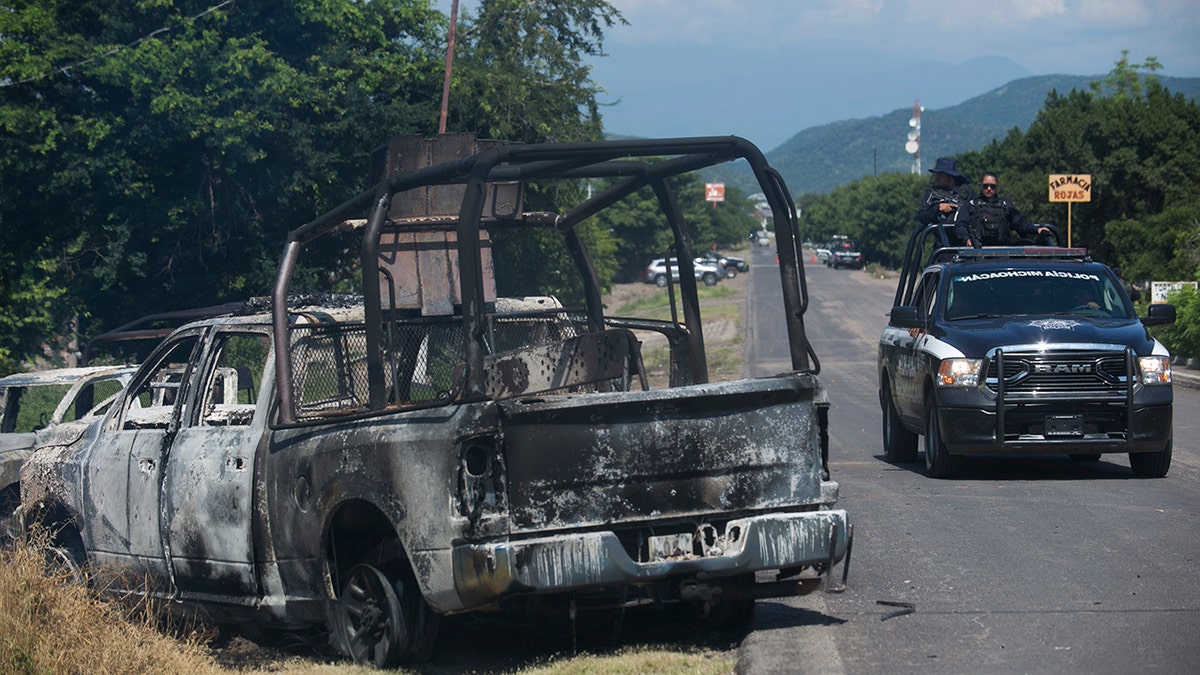
A charred truck that belongs to Michoacan state police sits on the side of the road after it was burned during an attack, as state police drive past in El Aguaje, Mexico, Monday, Oct. 14, 2019. At least 13 police officers were killed and three others injured Monday in the ambush. (AP Photo/Armando Solis)
Edgardo Buscaglia, an expert at Columbia University with more than two decades of experience on anti-organized crime, told Fox News in a statement Tuesday that organized crime in Mexico has flourished because Lopez Obrador and previous administrators have resisted the application of 29 institutional "anti-mafia" mechanisms that more than 60 countries have already adopted.
"No wonder that Mexico suffers high levels of paramilitary violence that in many cases constitute acts of terrorism, such as the latest Sinaloa Cartel's paramilitary takeover of Sinaloa's capital (Culiacan)," he said.
GINGRICH: DEATHS OF AMERICANS IN MEXICAN CARTEL SHOOTOUT ARE A 'WAKE-UP CALL'
In the case of the tragedy in Sonora, Mexican security officials indicated it might have been a case of mistaken identity.
CLICK HERE TO GET THE FOX NEWS APP
The group was attacked Monday while traveling in a convoy of three SUVs toward Pancho Villa, Chihuahua.
It would not be the first time that members of the break-away church had been attacked in northern Mexico, where their forebears settled — often in Chihuahua state — decades ago.
Fox News' Danielle Wallace, Caleb Parke, Adam Shaw, Kristina Biddle and The Associated Press contributed to this report.







































